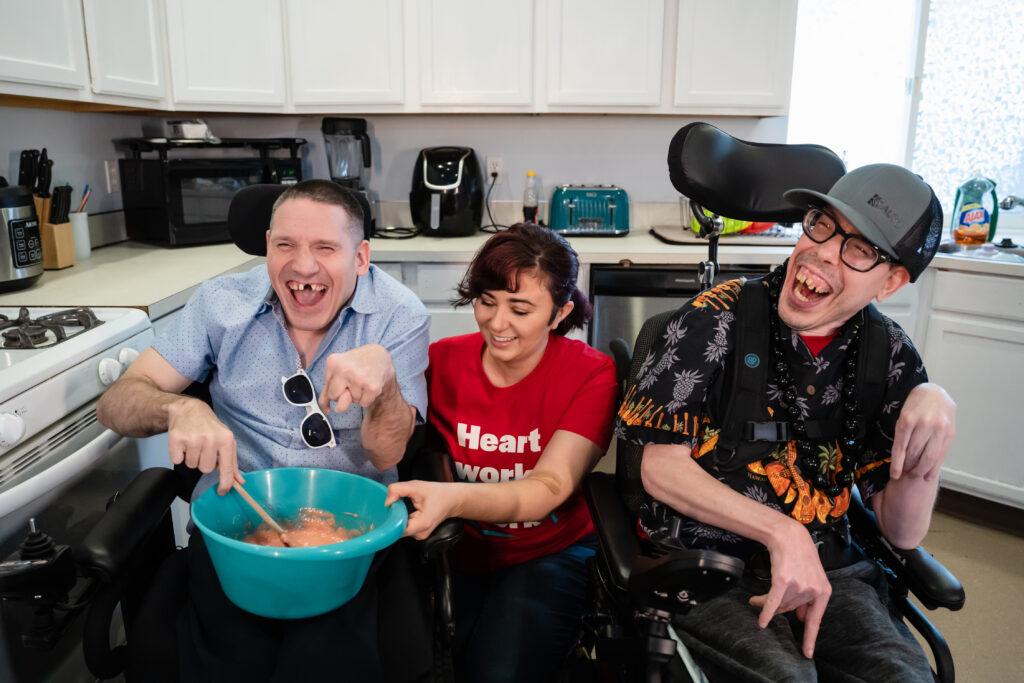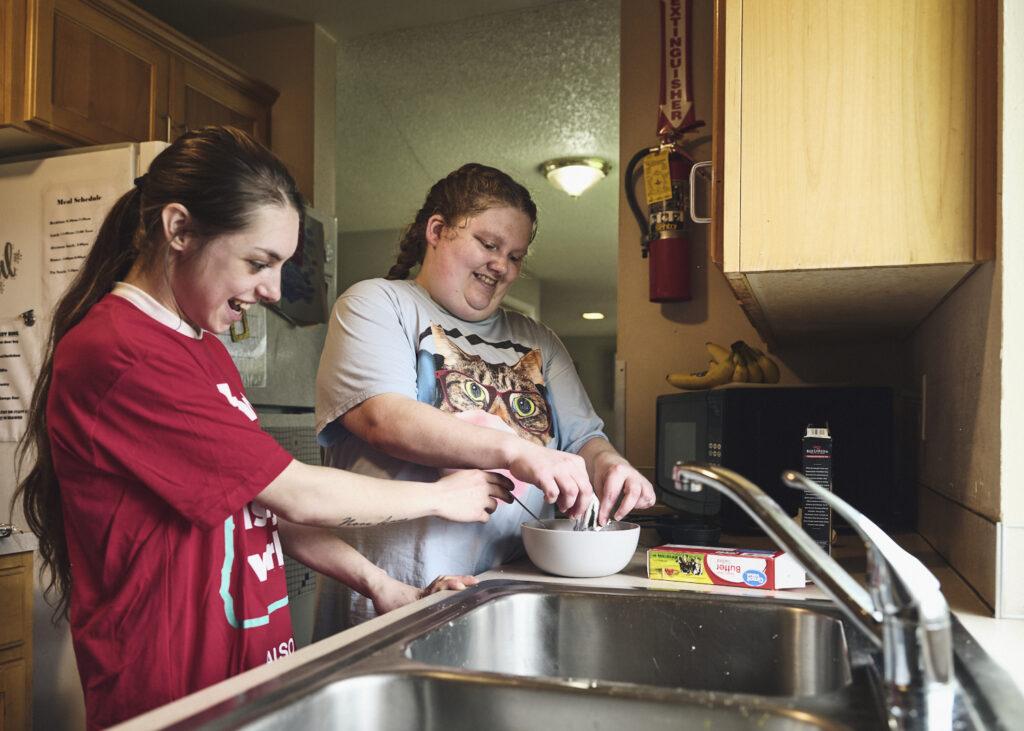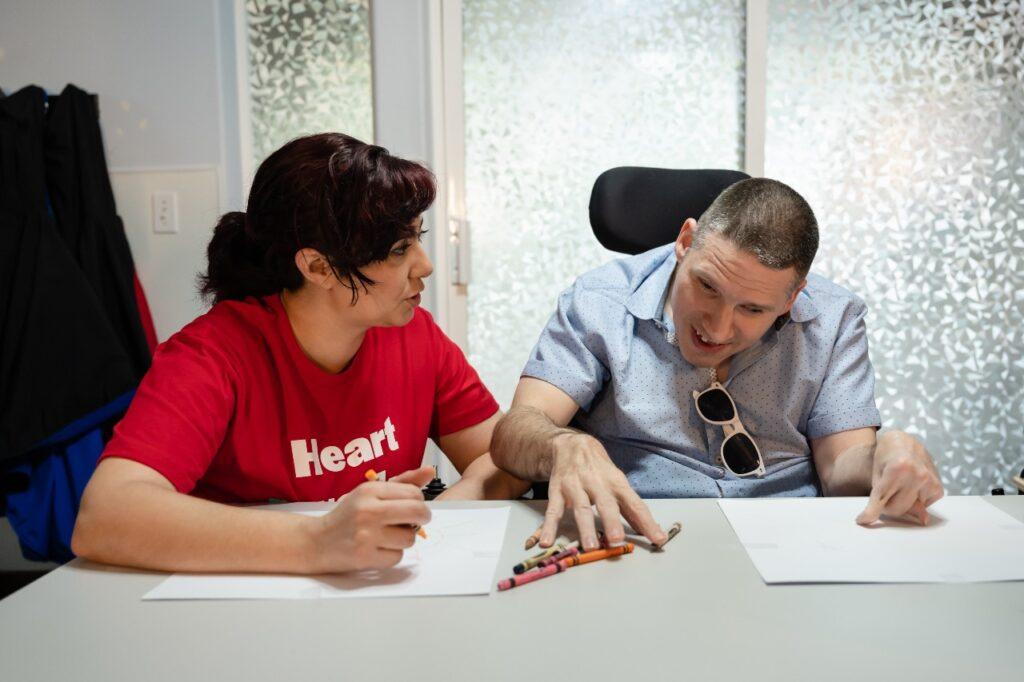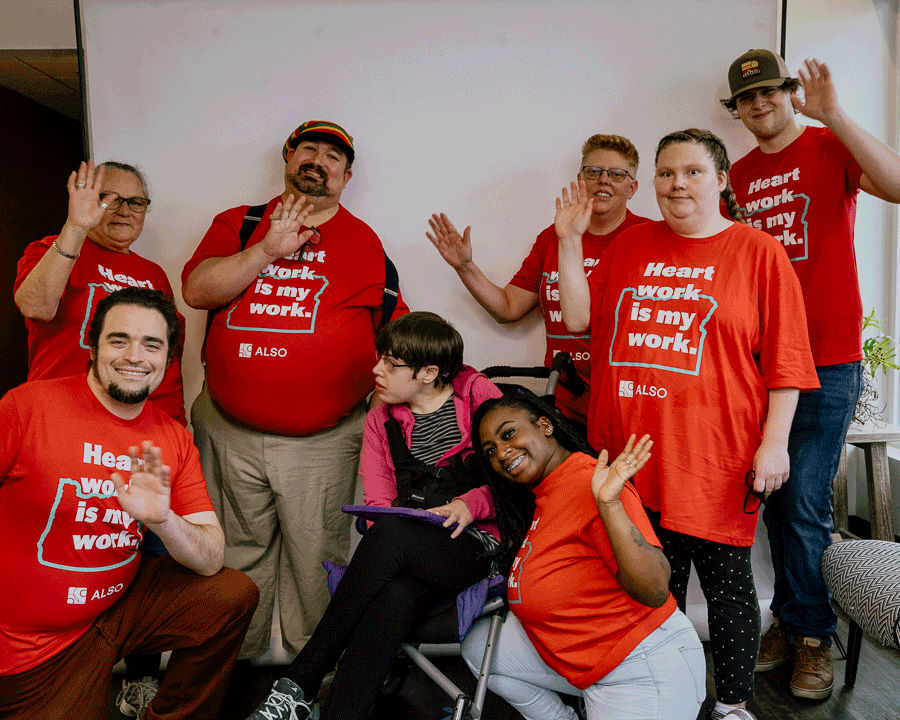What is Health Literacy for People with Disabilities?
For just a moment, let’s put ourselves in the shoes of someone who is living with a disability.
- How would you feel if you had a visual impairment and, after a surgical procedure, your health care provider gave you written discharge instructions that were extremely difficult (if not impossible) to see?
- What if you were living with a neurodivergent disability (such as autism), and you took your sick child to the emergency room (ER)? The health care provider is hurriedly explaining how to care for your child, but you’re extremely distracted by the annoying sounds, flashing lights, and the chaotic chatter that’s so common in ER settings… Would you be able to follow these important directions from the doctor to care for your child?
- What if you had an intellectual disability and also had diabetes? If the nurse is explaining how to manage your diet in a rushed manner without checking to make sure you understood him/her, would you be confident in taking proper care of yourself?
It’s highly likely that in any of the above scenarios, your ability to make well-informed health-related decisions would be extremely difficult. The risk for future and more serious health problems could increase dramatically.
So, when we think about health literacy for people with disabilities, there are a few major points we need to remember when it comes to effective health promotion:
- Health information must be clear to the person who is receiving it, regardless of their level of ability or disability.
- Healthcare providers have a major role to play in improving personal as well as organizational health literacy.
- Persons with disabilities are the same as those of us without disabilities: everyone cares about their health, and truly wants information that’s easy to find, understand, and use effectively.
Health literacy not only benefits individuals, but families, community members, and society as a whole: rehabilitative research in health literacy skills has been shown to improve health outcomes and decrease overall health costs.5
What Does Health Literacy for Individuals with Disabilities Look Like?
No matter who we are, maintaining a lifetime of good health is no small task in our complex health care system. Most of us struggle with overwhelming health-related decisions without the important knowledge that allows us to make those decisions with confidence.
For those with disabilities, the challenges of finding, locating, and effectively using health information are magnified. However, it’s definitely possible to achieve success! Check out these real-world examples of effective health literacy promotion:
- Individuals with cognitive disabilities frequently have limited reading comprehension. Effective health literacy involves making sure that reading materials accommodate low grade-level reading skills. It’s important to note that lower reading literacy levels are common in the average adult population.6
- Often, people with hearing impairments have extra difficulty in the presence of background noises. When they request relocation to a quieter area so that they can understand instructions, this demonstrates skills in personal health literacy.
With a spirit of collaboration, health care professionals, persons with disabilities, and their advocates, can work together. This would go a long way in preventing health disparities of people with disabilities.
6 Top Ways People with Disabilities Improve Their Health Literacy

There are many ways that people with disabilities can improve their health literacy skills. It takes an individual desire to obtain a greater understanding (personal health literacy), as well as a concerted effort among organizations to establish strategies that ensure health equity in all aspects of care (organizational health literacy).
Personal Health Literacy
- Health concepts are loaded with complex information that can be confusing to anyone—disability or not. You are well within your rights to assertively ask questions for clarification.
- Get support from others. Family members, human services providers, and friends can be excellent resources in helping to address health literacy issues.
- Learn about your health issues. Health resources are plentiful at the local library, and on-line. It’s always a good idea to review this information with someone you trust to make sure that it’s accurate.
Organizational Health Literacy
- Health services organizations must clearly understand their target audience when designing health education materials. This includes the use of plain language techniques7 in printed and digital communications.
- Organizations must ensure that healthcare providers understand health literacy concepts so they can give clear communication during healthcare appointments. Teach-back8 is an excellent example of a proven health literacy strategy.
- Adopt and/or create health literacy programs that target the needs of our diverse population.
LEARN MORE: Population Considerations for Health Literacy Programs,9 including those with disabilities, older adults, and people with limited English proficiency.
What is Disability Pride Month?
Disability Pride Month celebrates the signing of the ADA. During this month, we honor the contributions, history, and progress that has been made towards equitable access and treatment of persons with disabilities. But just as important, we put a laser focus on the work yet to be done. People with disabilities continue to face discrimination and limited opportunity in most areas of life, including health care.
Health Literacy and Disability Pride Month
The 2024 theme for Disability Pride is: We Want a Life Like Yours. Most would certainly agree that health equity is among the most precious needs when it comes to living a full and productive life. Some rehabilitation research reveals that people with intellectual and developmental disabilities are generally an underserved population when it comes to health literacy promotion.
In her article, Where Health Literacy Meets Inclusion (published by the Centers for Disease Control and Prevention), Sara Mitchell explains that health literacy is a necessary component of health equity as well as inclusion.10 Furthermore, inclusion of people of all ability levels in every aspect of life is a core concept of the ADA.
How ALSO Supports Health Literacy
ALSO direct support professionals (DSPs) crush myths every day when it comes to helping individuals with intellectual and developmental disabilities become more independent in all aspects of life (including health care). We start by fully embracing the concept of person-centered support services. From there, we provide support and assistance in health literacy in many ways, including,
- Exploring options and providing training for assistive technology needs such as screen readers and wheelchair ramps.
- Helping those we support with understanding basic health information (we always get consultations from doctors and other professionals if needed).
- Assisting in medication management and other health-related information.
- Respecting autonomy in healthcare.
- Mentoring those we support on their rights to privacy and confidentiality.
Celebrate Disability Pride Month with Us!

At ALSO, we celebrate disability pride not just every July, but throughout the whole year! As you learn more about us, you’ll quickly realize how much we love our work with people who are experiencing intellectual and developmental disabilities. Browse our blog to learn about our history, our accomplishments, and our continued dedication to the people we support, their families, and their communities.
Looking for a career as a DSP? Learn more here!
Sources:
- Centers for Disease Control and Prevention [CDC]. What is Health Literacy? Last Reviewed July 11, 2023. Accessed July 20, 2024. https://www.cdc.gov/healthliteracy/learn/index.html
- DIXON JP. The community responsibility for medical care. Am J Public Health Nations Health. 1959;49(1):76-81. doi:10.2105/ajph.49.1.76 https://www.ncbi.nlm.nih.gov/pmc/articles/PMC1372646/pdf/amjphnation00317-0078.pdf
- Centers for Disease Control and Prevention [CDC]. What is Health Literacy? Last Reviewed July 11, 2023. Accessed July 20, 2024. https://www.cdc.gov/healthliteracy/learn/index.html
- Healthy People 2030. History of Health Literacy Definitions. Accessed July 21, 2024. https://health.gov/healthypeople/priority-areas/health-literacy-healthy-people-2030/history-health-literacy-definitions
- National Academies of Sciences, Engineering, and Medicine. People Living with Disabilities: Health Equity, Health Disparities, and Health Literacy: Proceedings of a Workshop. 2018. Washington, DC: The National Academies Press. https://doi.org/10.17226/24741 https://nap.nationalacademies.org/read/24741/chapter/1
- AHRQ Health Literacy Universal Precautions Toolkit. Content last reviewed June 2024. Agency for Healthcare Research and Quality, Rockville, MD.
https://www.ahrq.gov/health-literacy/improve/precautions/index.html
- National Institutes of Health. Plain language: getting started or brushing up. 2013. https://www.nih.gov/sites/default/files/institutes/plain-language/nih-plain-language-getting-started-brushing-up.pdf
- Beauchamp, TJ., Shee, WA, Rasmussen, B, Hilbers, J. The Teach-Back Toolkit: a guide to the use and implementation of the teach-back method. 2021. https://teachback.org/wp-content/uploads/2022/02/Teach-Back-Toolkit_for-website_Sept-2021.pdf
- Rural Information Hub. Population considerations for health literacy programs. https://www.ruralhealthinfo.org/toolkits/health-literacy/4/population-considerations
- Mitchell, S. Where health literacy meets inclusion. October 4, 2021.Accessed July 22, 2024. https://blogs.cdc.gov/niosh-science-blog/2021/10/04/health-literacy-2021/





